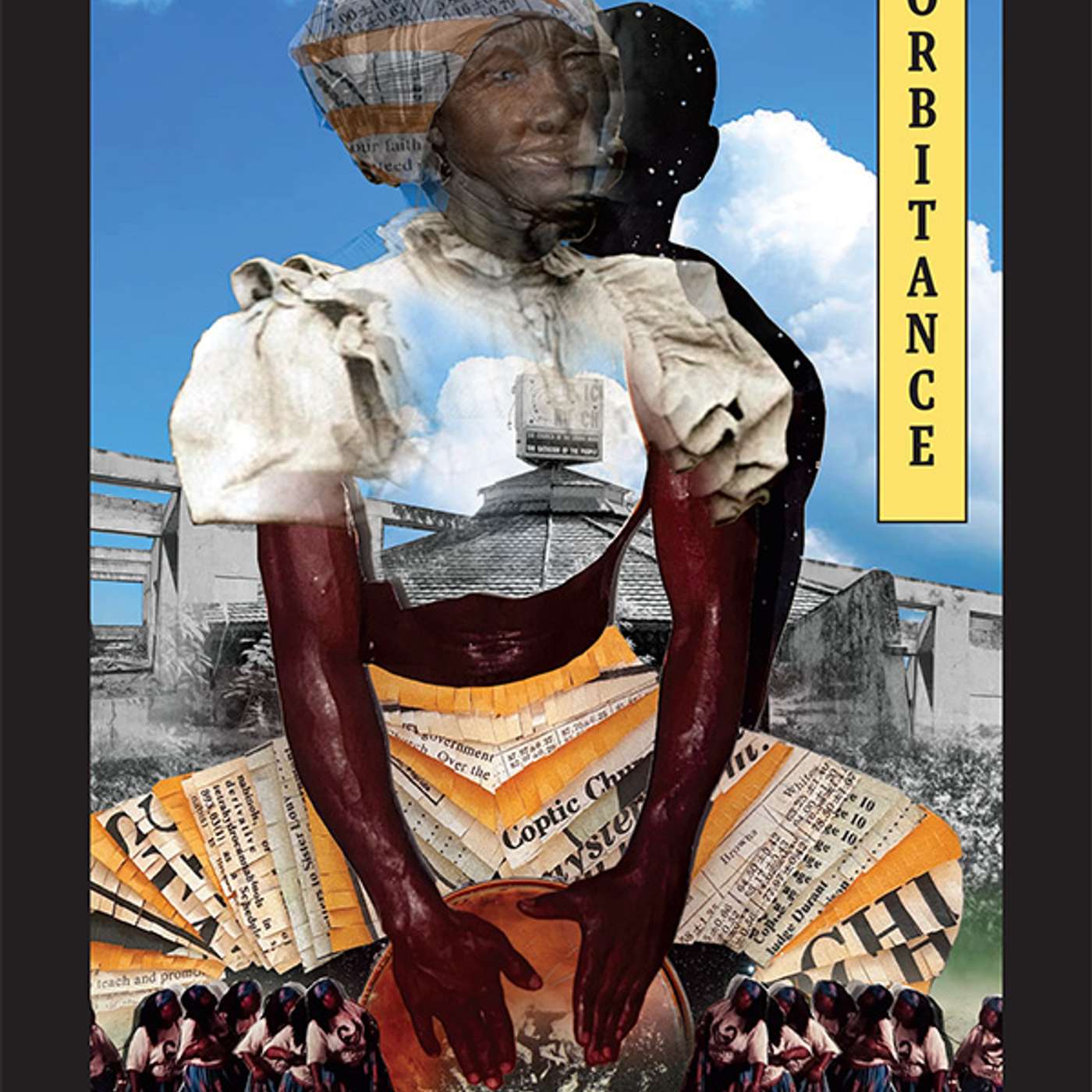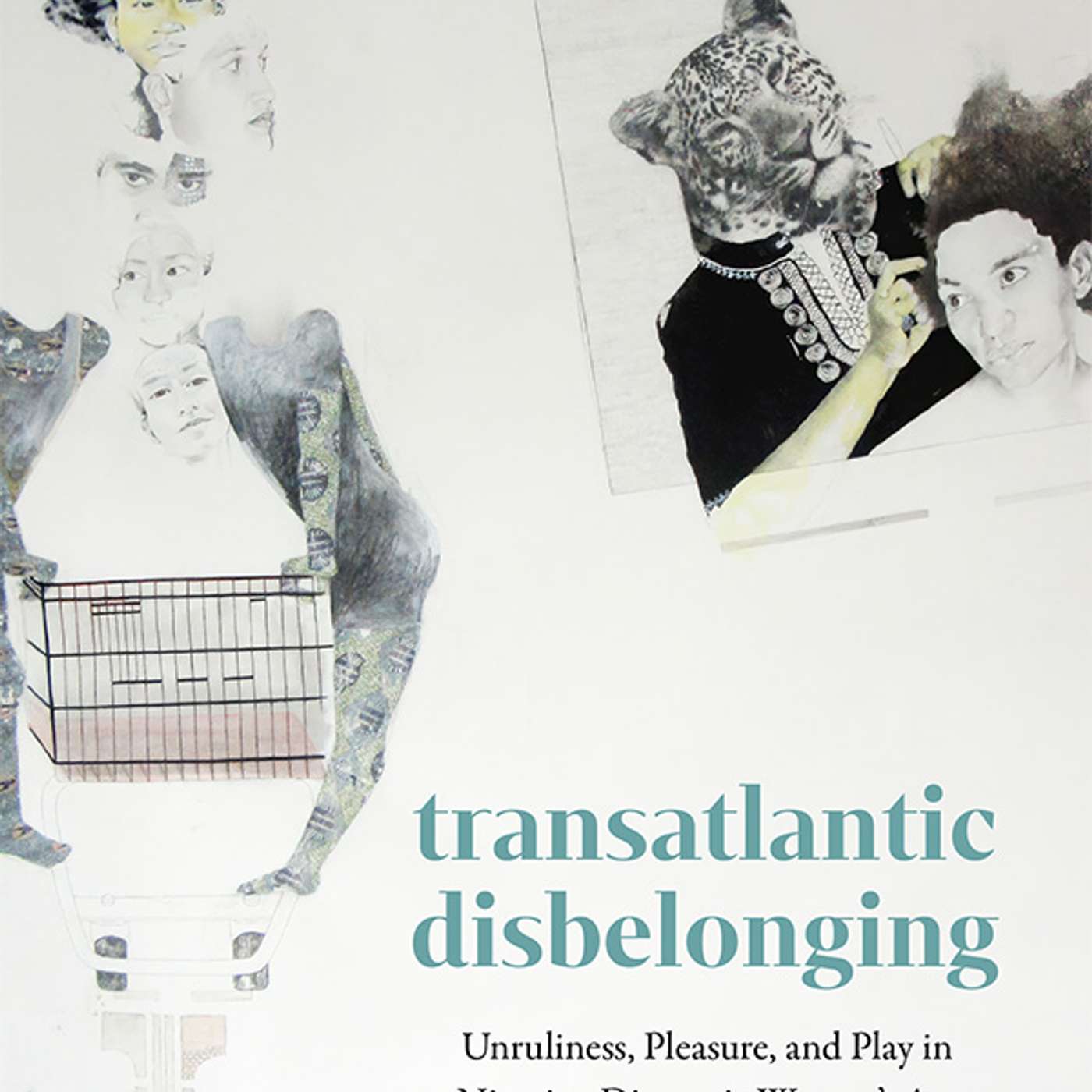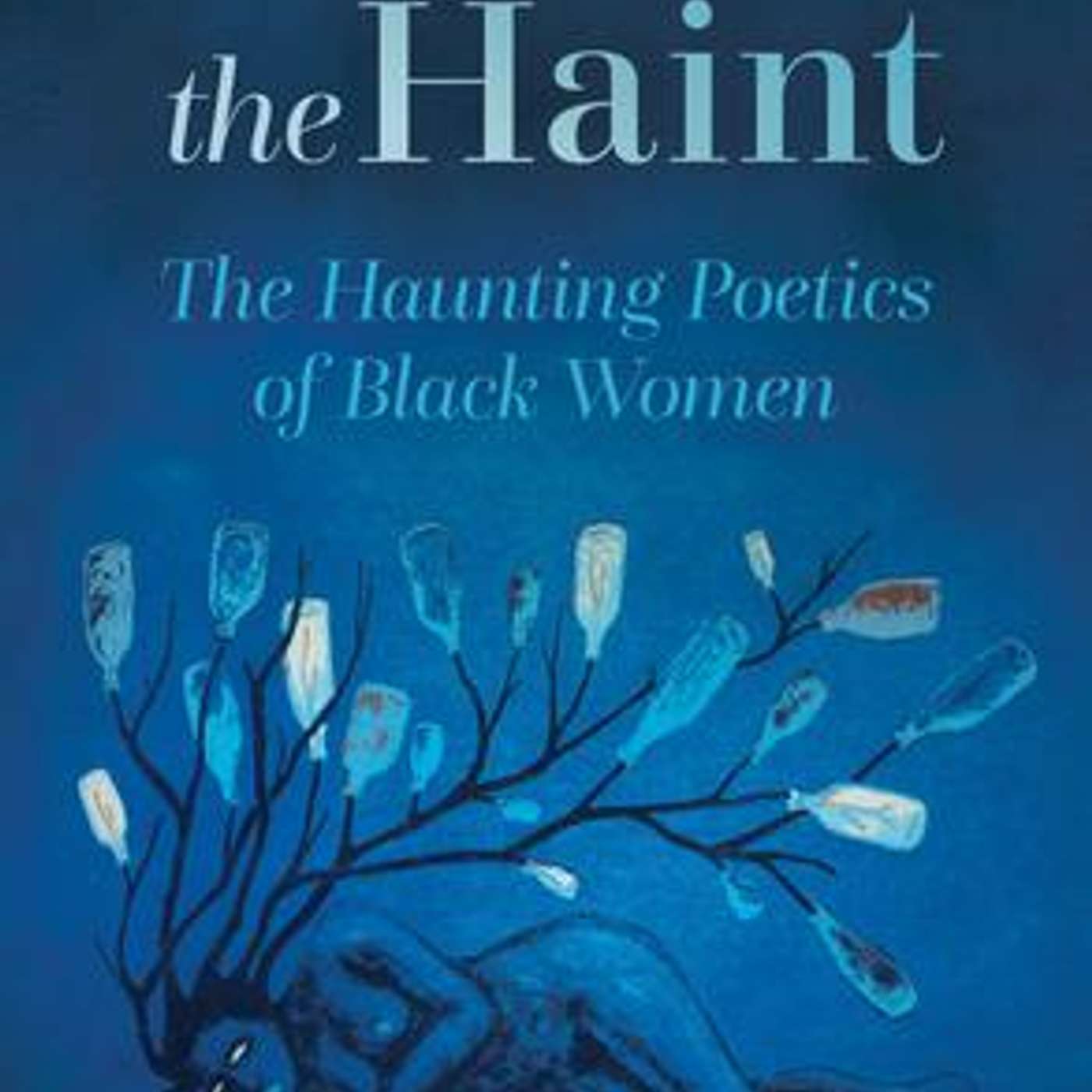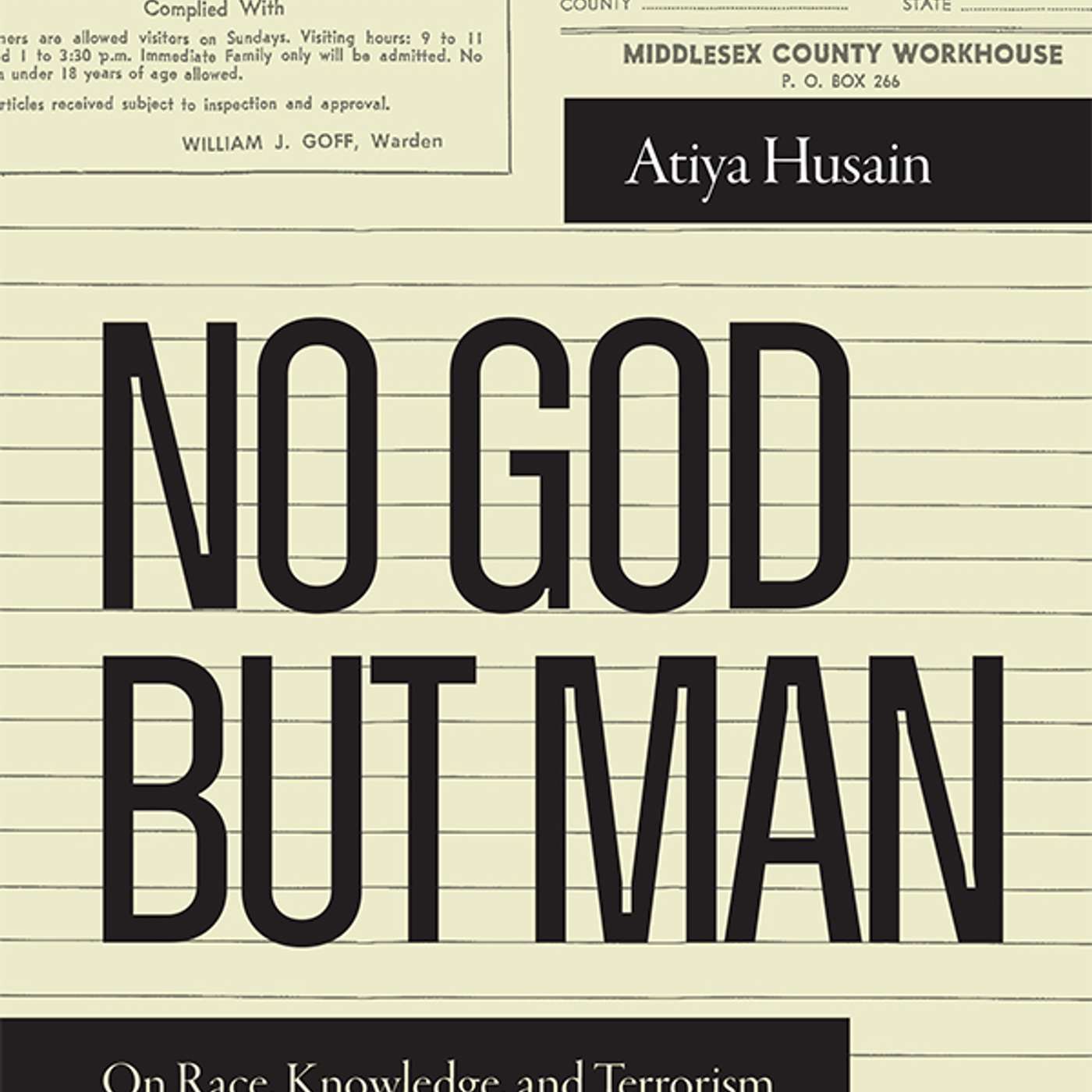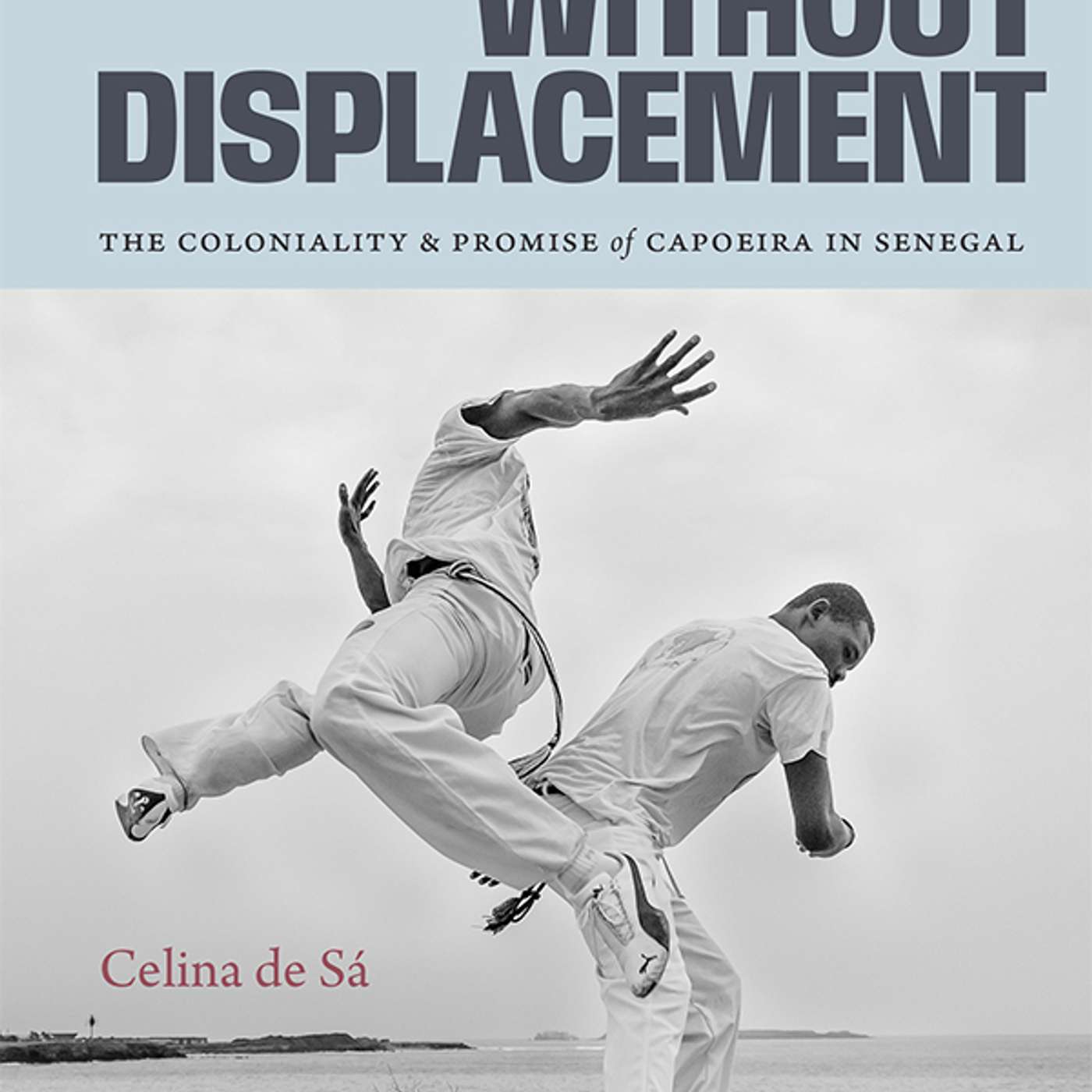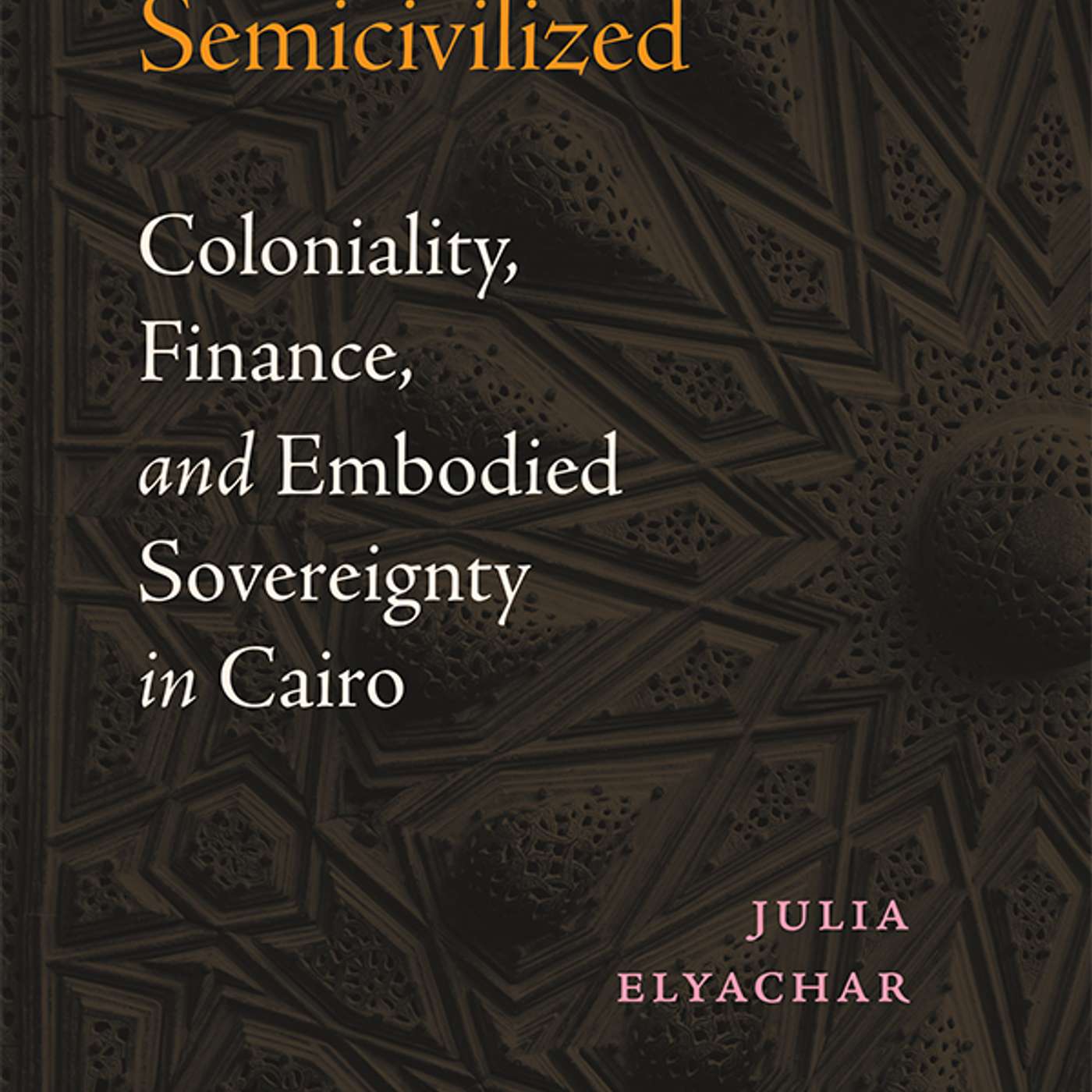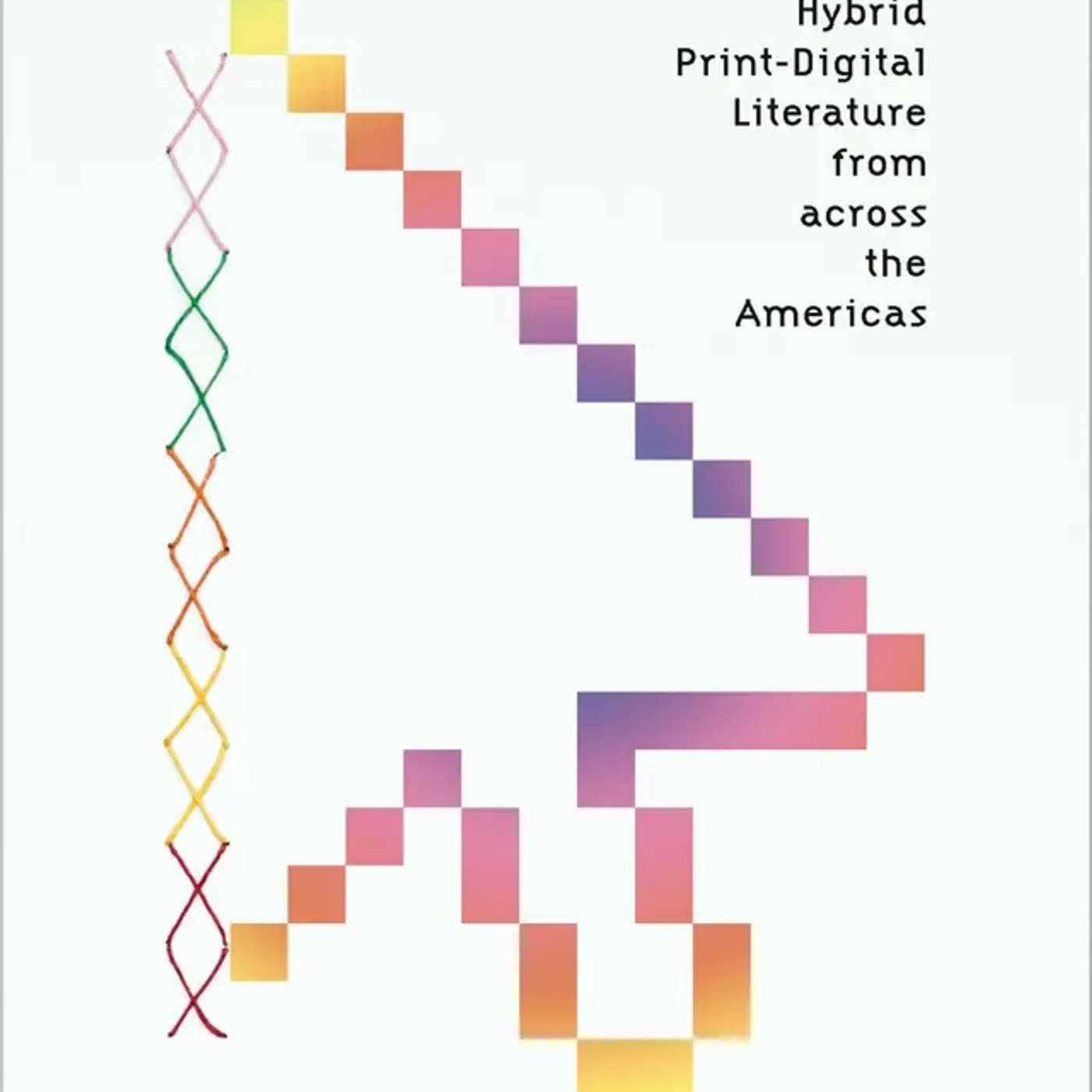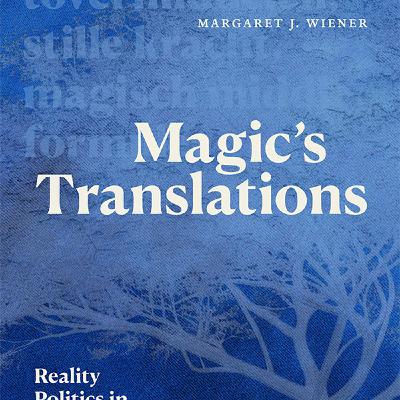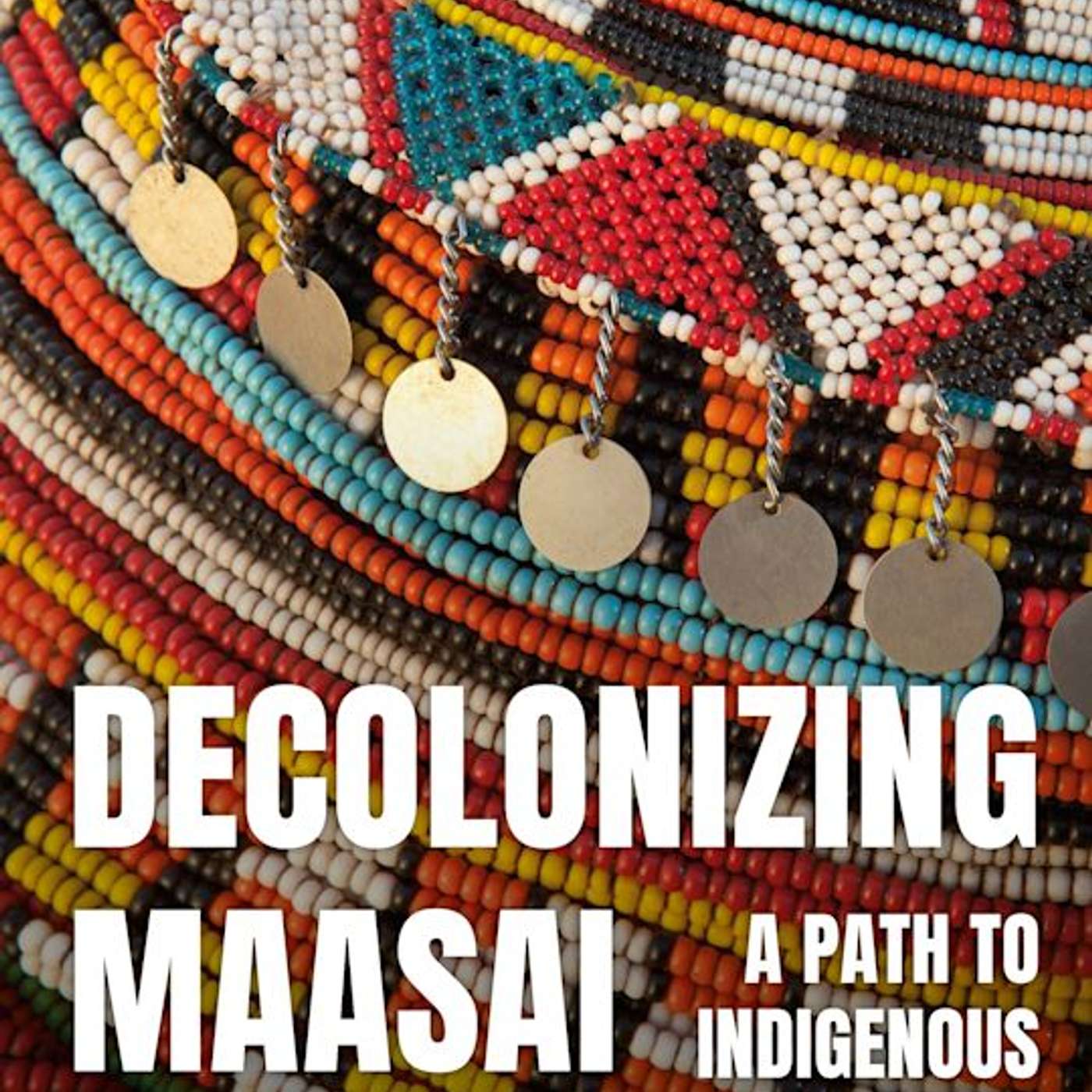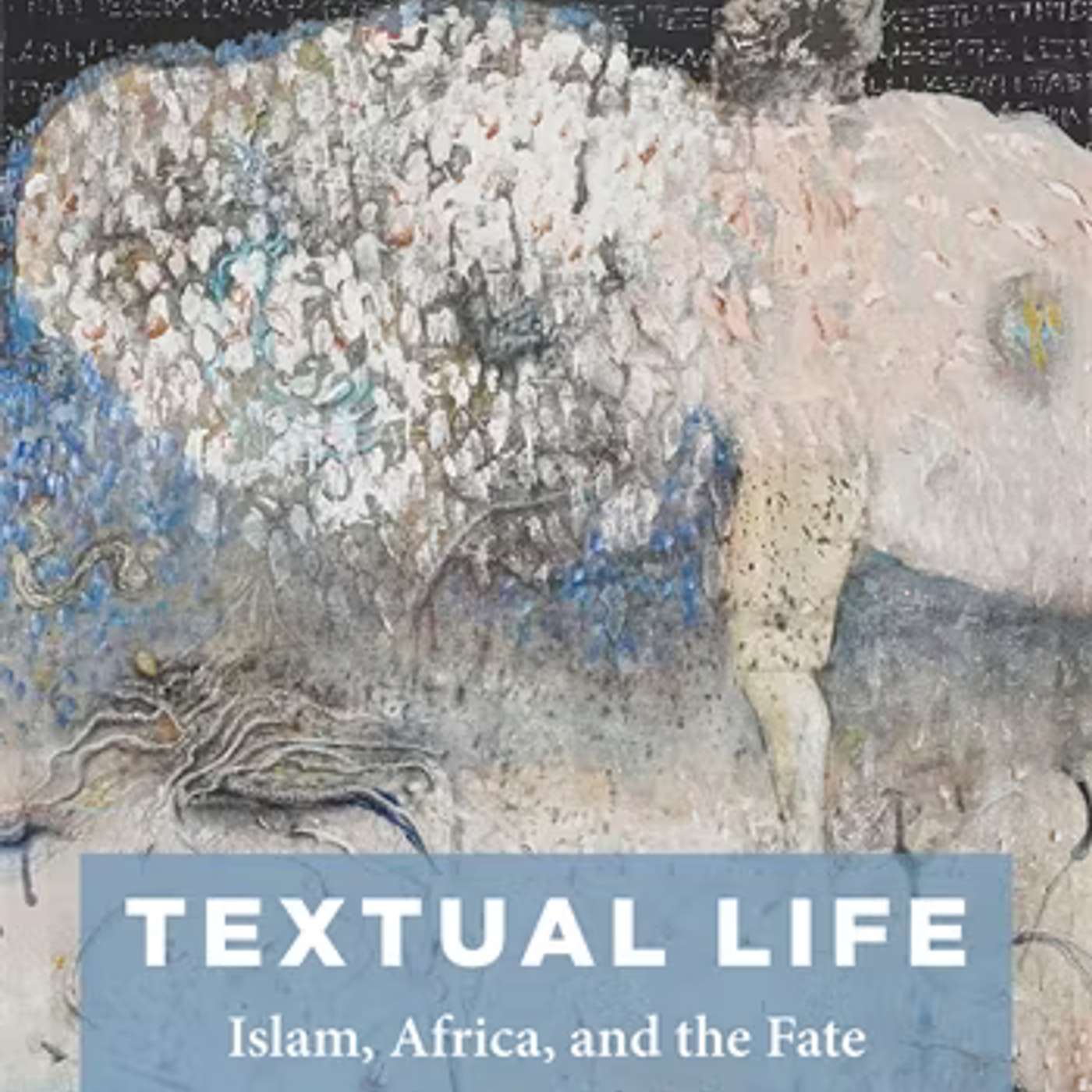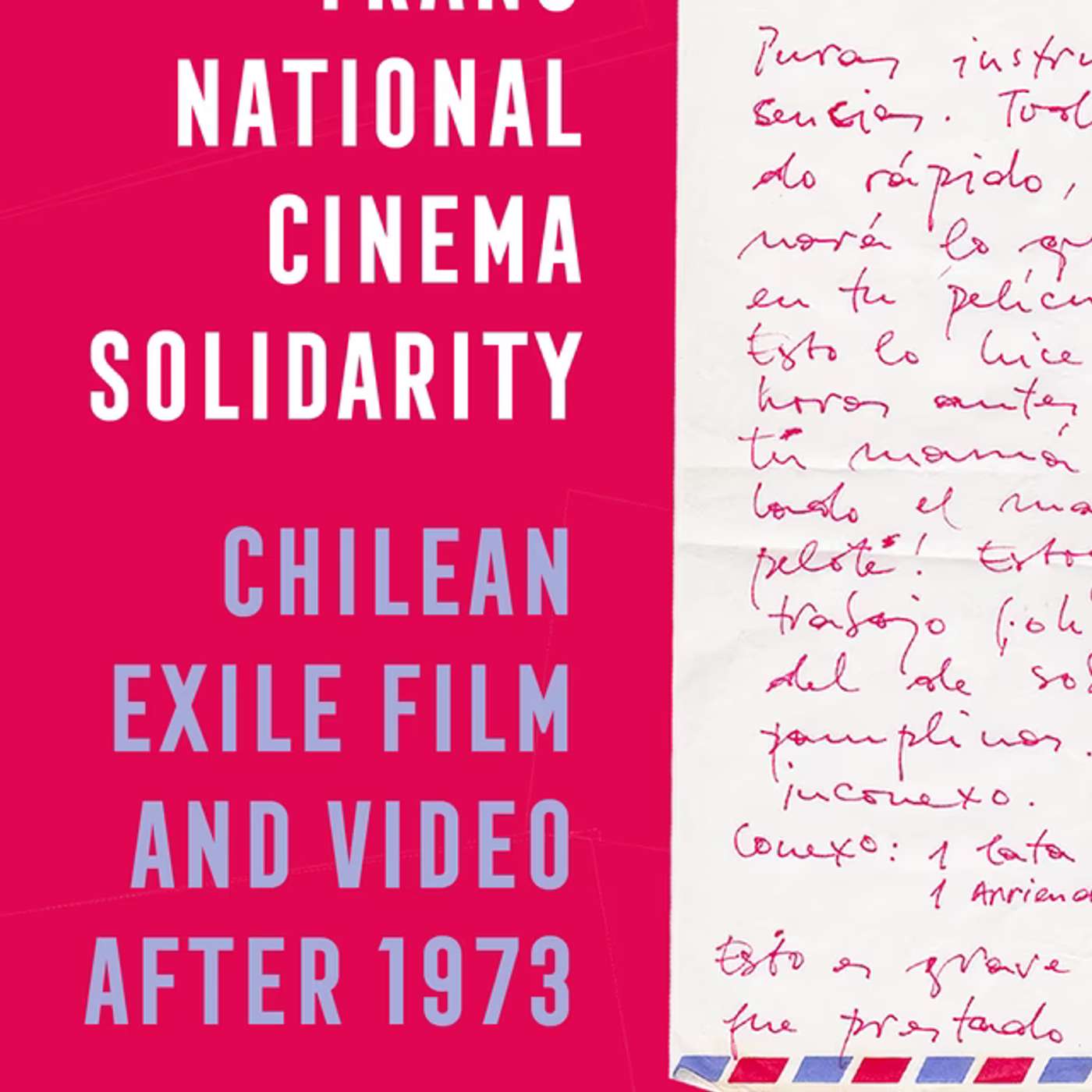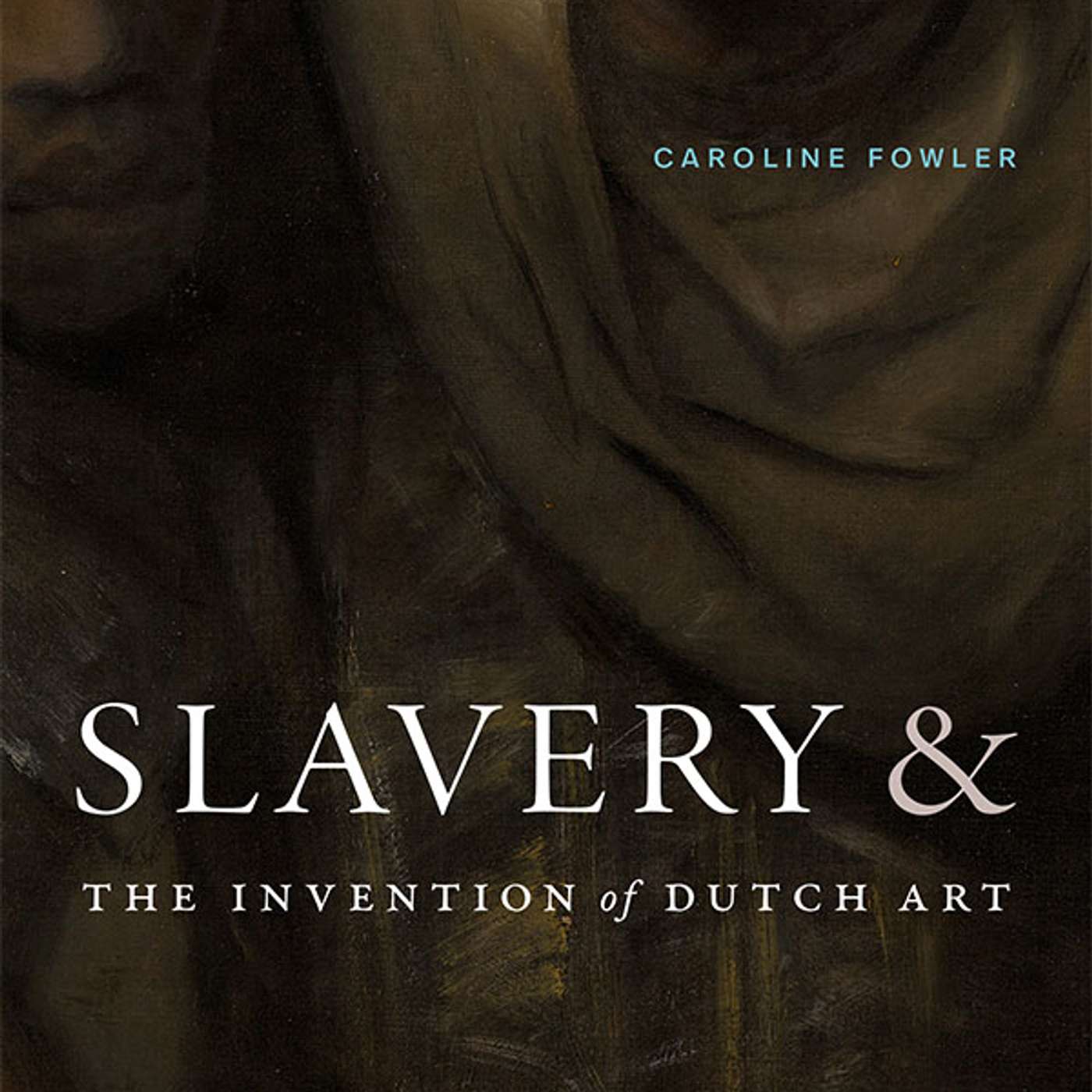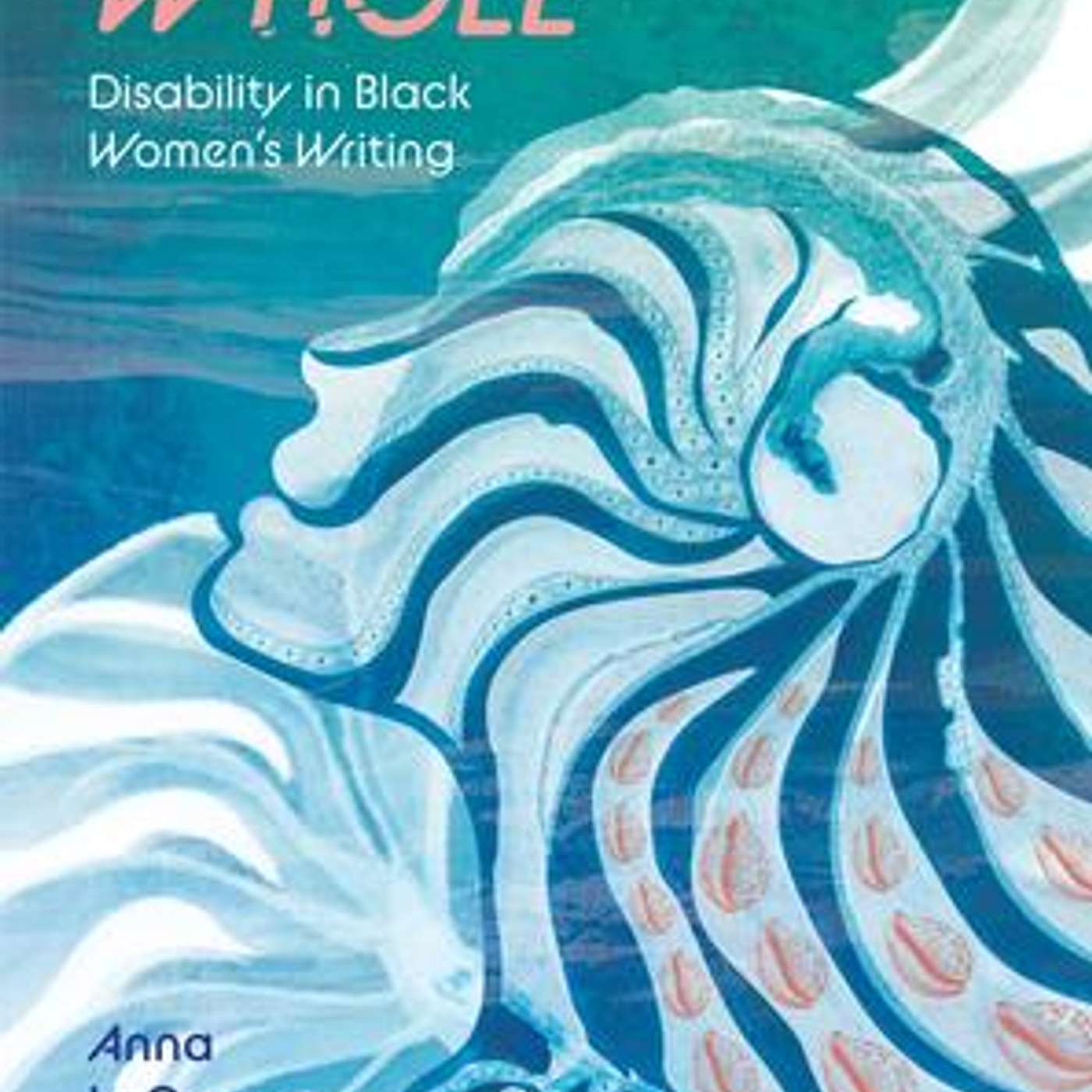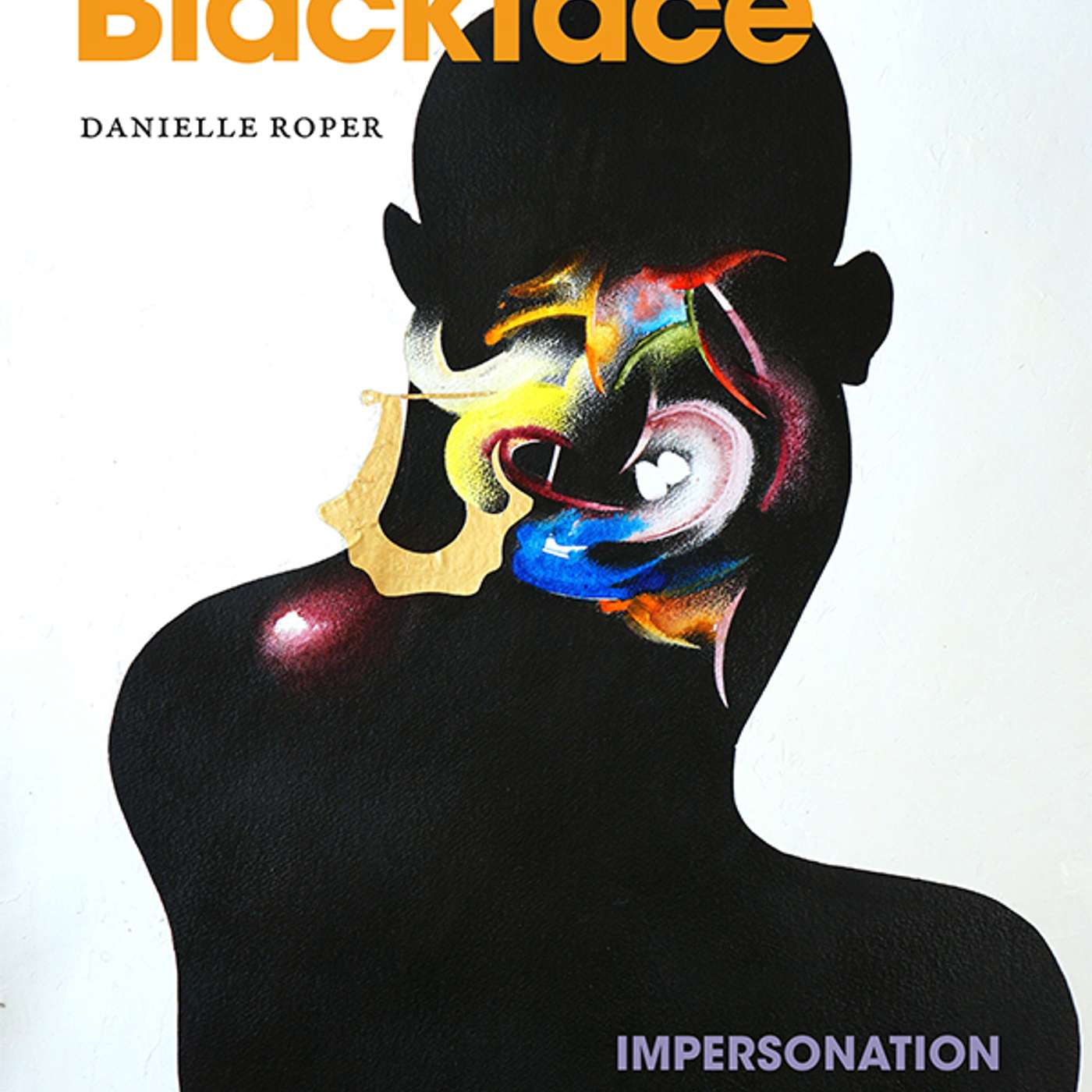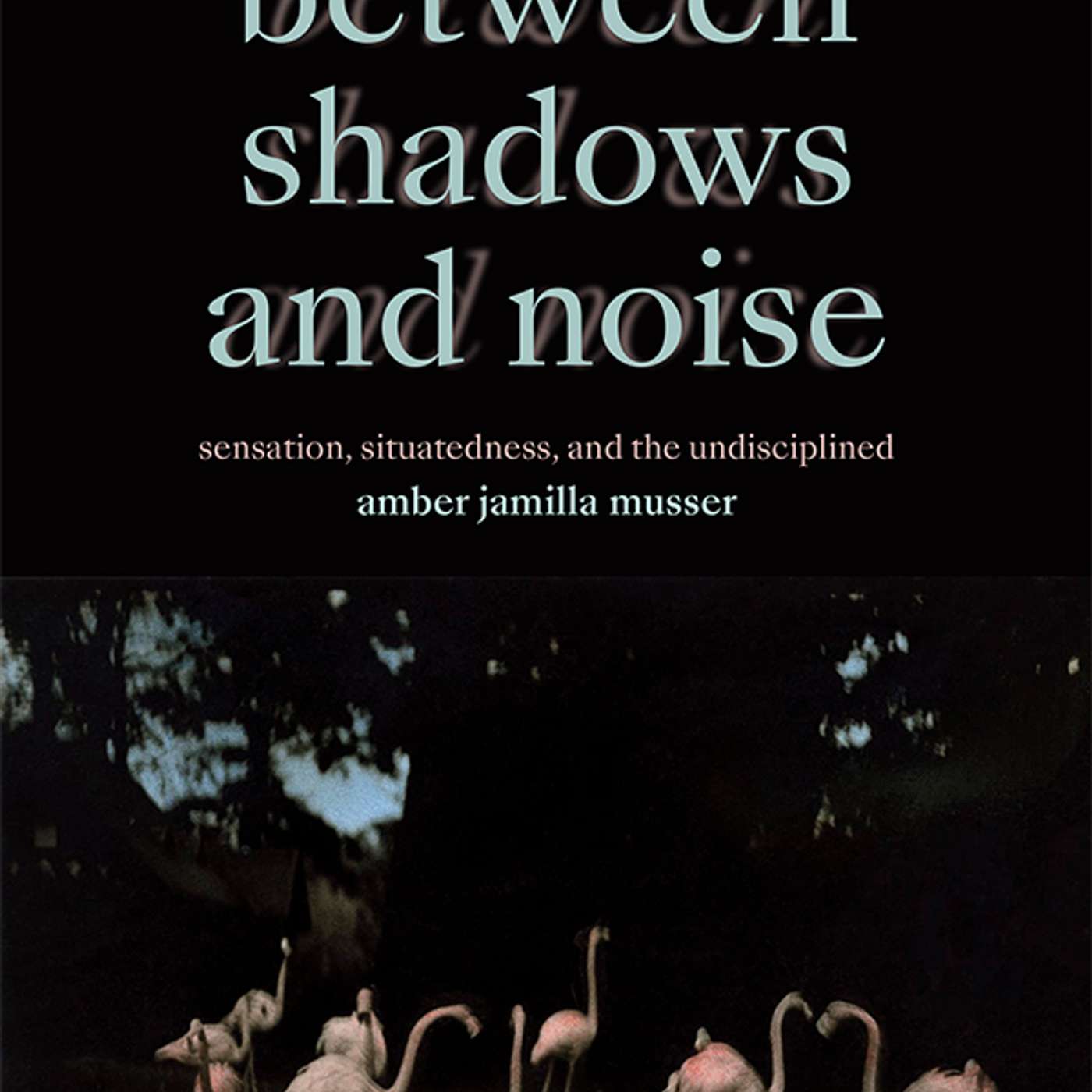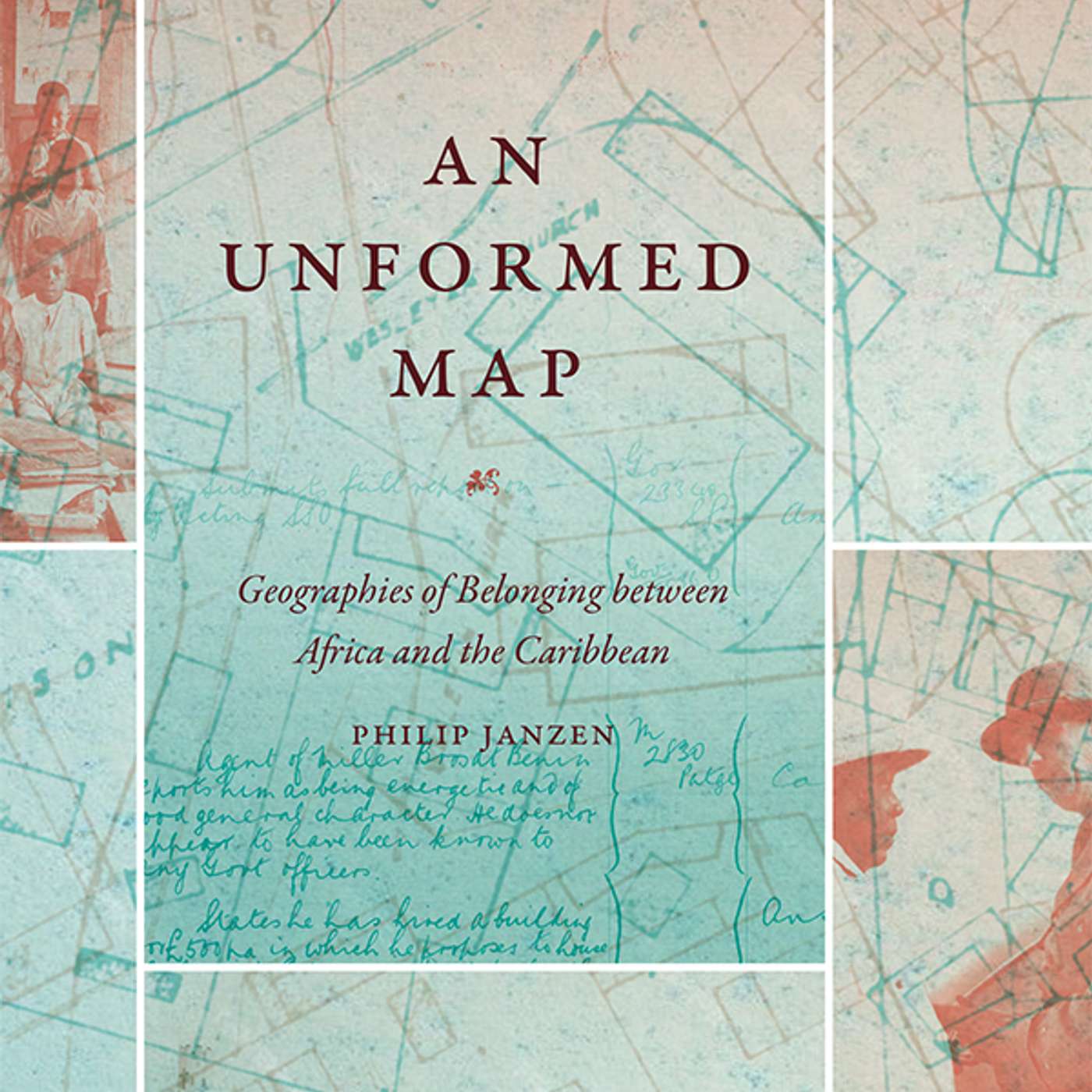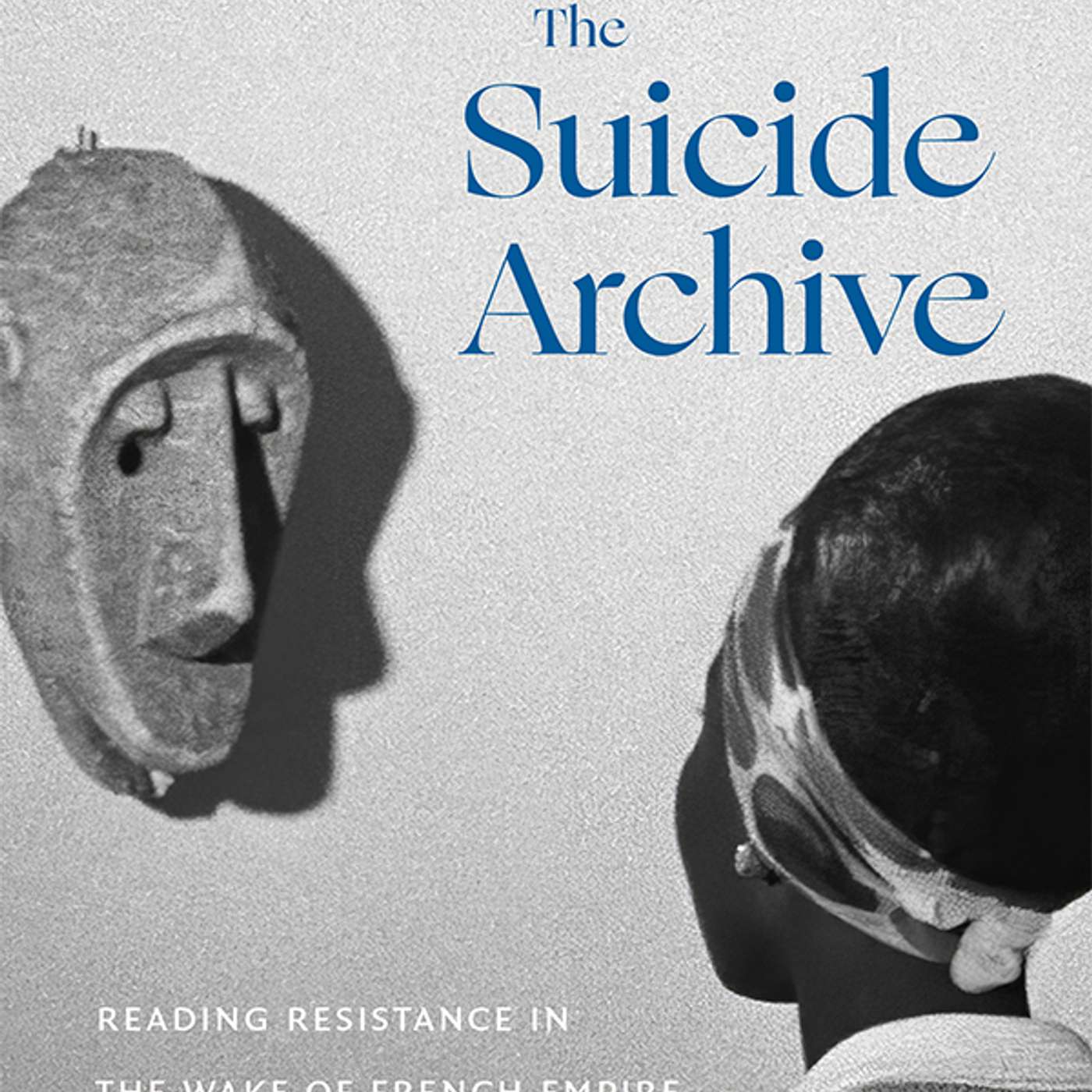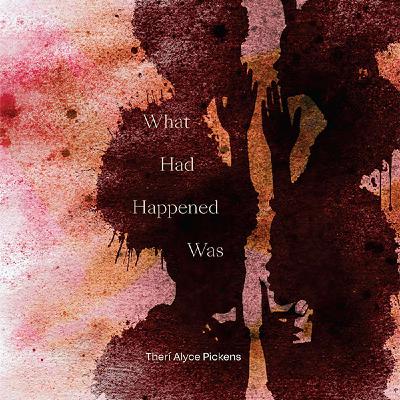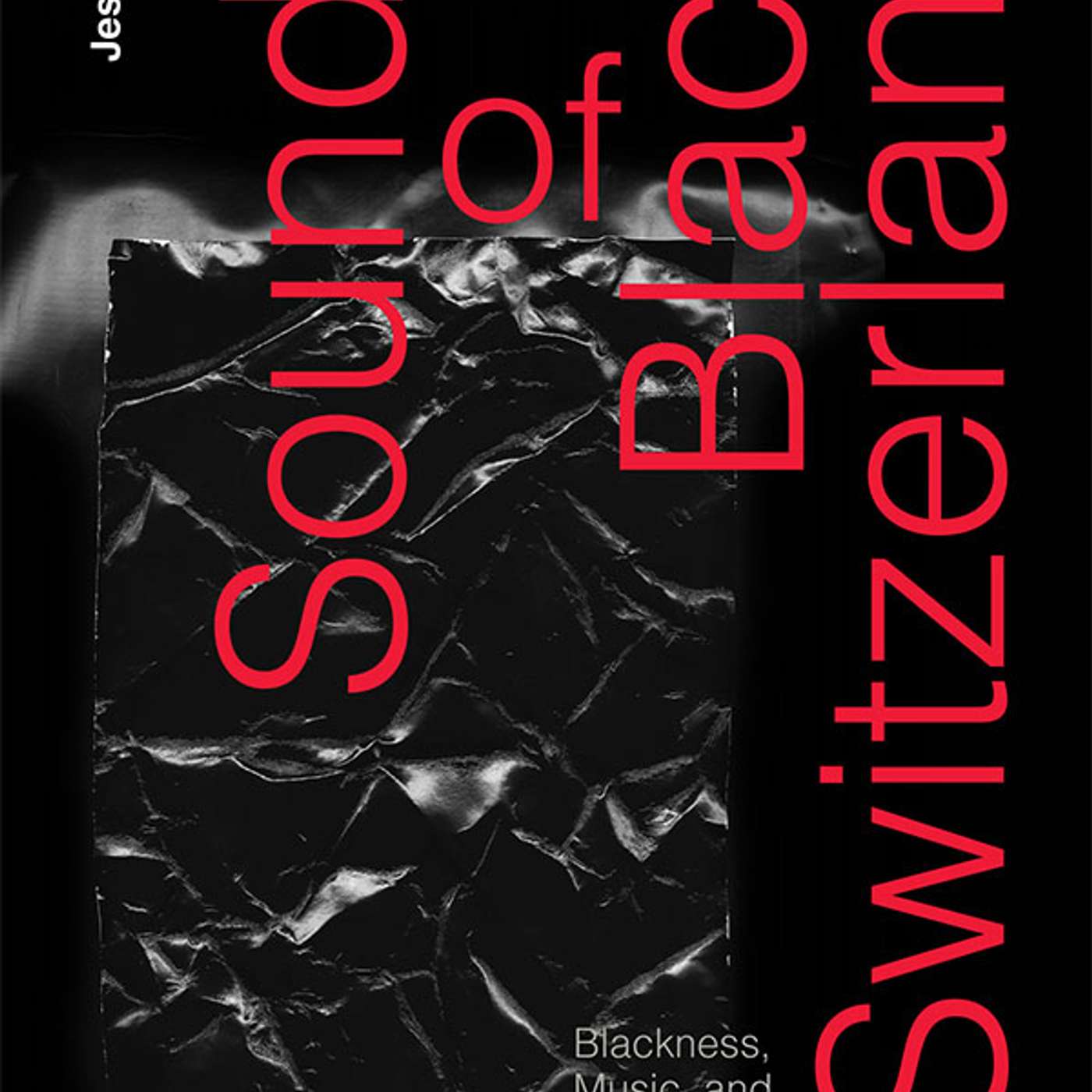Discover Conversations in Atlantic Theory
Conversations in Atlantic Theory

Conversations in Atlantic Theory
Author: Journal of French and Francophone Philosophy
Subscribed: 7Played: 127Subscribe
Share
© 2022 JFFP
Description
These conversations explore the cultural, political, and philosophical traditions of the Atlantic world, ranging from European critical theory to the black Atlantic to sites of indigenous resistance and self-articulation, as well as the complex geography of thinking between traditions, inside traditions, and from positions of insurgency, critique, and counternarrative.
108 Episodes
Reverse
Dr. Deborah A. Thomas is Chair and the R. Jean Brownlee Professor of Anthropology, and the Director of the Center for Experimental Ethnography at the University of Pennsylvania. She is also core faculty in Gender, Sexuality and Women’s Studies, holds secondary appointments with the Graduate School of Education and the Department of Africana Studies, and is a member of the graduate groups in English, Comparative Literature, and the School of Social Policy and Practice. She is also a Research Associate with the Johannesburg Institute for Advanced Study at the University of Johannesburg. Prior to her appointment at Penn, she spent two years as a Mellon Post-Doctoral Fellow at the Center for the Americas at Wesleyan University, and four years teaching in the Department of Cultural Anthropology at Duke University. In today’s conversation, we discuss Dr. Thomas’ latest monograph, Exorbitance: A Speculative Ethnography of Inheritance, where she calls for new approaches to political sovereignty grounded in the embodied forms of autonomy and relation created in daily life.
Dr. Bimbola Akinbola is an artist and scholar currently based in Chicago. Working at the intersection of African diapora studies, performance, and visual art, her scholarly and artistic work is concerned with the complicated and nagging nature of belonging, queerness, and the concept of family. Dr. Akinbola's newly published book, Transatlantic Disbelonging: Unruliness, Pleasure and Play in Nigerian Diasporic Women's Art examines anti-respectability, queer kinship, and diasporic homemaking in the creative work of contemporary Nigerian diasporic women artists. Her essays have also been published in Text and Performance Quarterly and Women Studies Quarterly.
Dr. drea brown is a queer Black feminist poet-scholar whose writing has appeared in journals and anthologies such as Stand Our Ground: Poems for Marissa Alexander and Trayvon Martin, the Smithsonian Magazine, Southern Indiana Review, Bellingham Review and About Place Journal. drea is the author of dear girl: a reckoning, winner of the Gold Line Press 2014 chapbook prize, and co-editor of Teaching Black: The Craft of Teaching on Black Life and Literature (U Pittsburgh 2021). In today’s conversation, we discuss her latest monograph Conjuring the Haint: The Haunting Poetics of Black Women where she argues that for Black women, haunting is both a condition and a strategy in lived experiences and literary productions.
Dr. Atiya Husain is Associate Professor of Africana Studies and a faculty affiliate in Anthropology/Sociology at Williams College. Her work has been published in scholarly journals such as Ethnic and Racial Studies, Sociology of Race and Ethnicity, as well as popular outlets including Boston Review, Slate, and Adi Magazine. She is a founding co-editor of the University of Toronto Press series “Dimensions: Islam, Muslims, and Critical Thought,” a founding board member of Communication and Race, and has also served as Associate Editor of Sociology of Race and Ethnicity. She has a PhD from the University of North Carolina at Chapel Hill, and a BA from the University of Michigan - Ann Arbor. In today’s conversation, we discuss her latest monograph No God but Man: On Race, Knowledge, and Terrorism, where she traces the origins and logics of the FBI wanted poster and argues how this logic continues to structure wanted posters, as well as much contemporary social scientific thinking about race.
Dr. Celina de Sá is an Assistant Professor of Anthropology at the University of Texas at Austin. Originally from the SF Bay Area, she received her PhD with distinction at the University of Pennsylvania in Africana Studies and Anthropology. Outside of her professional life, she is also a capoeirista and training to be a flamenco dancer. In today’s conversation, we discuss her latest monograph Diaspora Without Displacement: The Coloniality and Promise of Capoeira in Senegal, (published by Duke University Press July 2025) where she analyzes a capoeira network across West Africa, de Sá shows how urban West Africans use capoeira to explore the relationship between Blackness, diaspora, and African heritage.
Dr. Julia Elyachar is an author, anthropologist, and political economist. She was trained in anthropology, economics, history of political and economic thought, political economy, social theory, Middle Eastern Studies, and Arabic language. At Princeton, she is an associate professor of anthropology, and associate professor at the Princeton Institute for International and Regional Studies. She received her BA in Economics from Barnard College, Columbia University and her MA and PhD in Anthropology and Middle East Studies from Harvard University. In today’s conversation, we discuss her latest monograph On the Semicivilized: Coloniality, Finance, and Embodied Sovereignty in Cairo. Drawing on thirty years of ethnographic research in Cairo, family archives from Palestine and Egypt, and research on Ottoman debt and finance to rethink catastrophe and potentiality in Cairo and the world today, Elyachar theorizes a global condition of the “semicivilized” marked by nonsovereign futures, crippling debts, and the constant specter of violence exercised by those who call themselves civilized. Looking at the world from the perspective of the semicivilized, Dr. Elyachar argues, allows us to shift attention to embodied infrastructures, collective lives, and practices of moving and acting in common that bypass lingering assumptions of territorialism and unitary sovereign rule.
Dr. Élika Ortega is assistant professor in the Department of Spanish and Portuguese at the University of Colorado, Boulder. Dr. Ortega writes about the intersection of digital and print publishing, digital literature, cultural hybridity, digital humanities, and multilingualism in academia. Her work on these topics has been published in venues like ASAP Journal, PMLA, Hispanic Review, Debates in the Digital Humanities, EBR, and others. She is currently one of the editors for the Electronic Literature Collection Vol. 5. Today we discuss Dr.Ortega’s monograph Binding Media. Hybrid Print-Digital Literature from across the Americas , published by Stanford University Press in March 2025, where she proposes the notion of “binding media” and provides us with an essential account of contemporary book history and highlights the way binding media help illuminate processes of cultural hybridization that have been instigated by the expediency of globalized digital technologies and transnational dynamics.
Dr. Margaret J. Wiener is a Professor of Anthropology at the University of North Carolina at Chapel Hill. Her book Visible and Invisible Realms: Power, Magic, and Colonial Conquest in Bali (University of Chicago Press) won the 1995 Victor Turner Prize for Ethnographic Writing, awarded by the Society for Humanistic Anthropology. Her publications have been grounded in many years of field research on the island of Bali, Indonesia’s most famous province, as well as foraging in colonial archives and libraries in The Netherlands. She considers herself an empirical philosopher, who brings an ethnographic sensibility to the clashes involved in colonial encounters while asking broad questions about practices of knowing and making worlds. Inspirations from thinkers in the interdisciplinary field of science, technology, and society (STS) inform her recent book Magic’s Translations: Reality Politics in Colonial Indonesia (Duke University Press, 2025), the topic of today’s conversation. Dr. Wiener examines how the category of magic traveled from Europe through the imposition of colonial rule and the birth of anthropology. Her current research extends her longstanding interest in the worlds different practices produce to multispecies entanglements and conflicting visions of the future.
Dr. Mary Poole is a historian of U.S. and African history, with an emphasis on histories of social movements, racial capitalism, colonialism, feminist and other critical social theory, and Indigenous decolonizing research methods. She has served on the faculty of Prescott College in Arizona since 2003. In the 1980s, she served as a fiscal analyst for the Washington State Senate Ways & Means Committee overseeing welfare policy during a period of federal dismantling of the U.S welfare state and rapid prison expansion and the corresponding increase in racially discriminatory drug laws. She later served as Executive Director for Early Options for Unintended Pregnancy, a non-governmental organization established to teach family practice doctors techniques of early abortion. She earned her PhD at Rutgers, which led to her first book, The Segregated Origins of Social Security: African Americans and the Welfare State (UNC: 2006) which demonstrates how the U.S. welfare state operates as a mechanism of racial capitalism, producing economic security as a property of whiteness. She has worked closely for over two decades with Meitamei Olol Dapash on land rights, environmental justice and decolonizing research, and has co-directed through that time the Institute for Maasai Education, Research & Conservation (MERC) and the Dopoi Center. In today’s conversation, we discuss Decolonizing Maasai History: A Path to Indigenous African Futures, (Zed Books/Bloomsbury, 2025), co-authored with Meitamei Olol Dapash, where they offer a new version of Maasai history based on Maasai memory and concerns. Meitamei Olol-Dapash is the founder and Executive Director of the Maasai Environmental Resource Coalition (MERC) a registered community-based organization in Kenya. MERC is a network of grassroots organizations and activists promoting the rights of the Maasai community and the environment.
Dr. Wendell Marsh is an Associate Professor of African Literature and Philosophy at Université Mohammed VI Polytechnique in Morocco. His work bridges Global Black Studies, African Studies, and Islamic Studies, with a focus on how African and diasporic intellectual traditions and expressive cultures reshape our understanding of knowledge, religion, and the humanities. In today’s conversation, we discuss his latest monograph, Textual Life: Islam, Africa, and the Fate of the Humanities, (Columbia University Press, 2025), where he recasts the role of knowledge in the making of a colonial and postcolonial nation. It makes a case for a new literary and intellectual-historical approach to Islam in Africa.
Dr.José Miguel Palacios is an Assistant Professor in the Department of Cinematic Arts at California State University Long Beach. His work explores the relations between transnational histories of radical cinemas and questions of migration, solidarity, networks of cinematic exchange, and archival practices He has published in journals like Film Quarterly, Screen, The Moving Image, Jump Cut, and [in] Transition. In today’s conversation, we discuss his book, Transnational Cinema Solidarity: Chilean Exile Film & Video after 1973 (UC Press, 2025) where he offers a politicized understanding of world and transnational cinema that emphasizes geopolitical relations and cinematic alliances based on solidarity. He is currently working on a second book devoted to the archives of exile filmmaker Raúl Ruiz, which was awarded a Project Development Grant by the American Council of Learned Societies (ACLS) in 2025.
Dr.Caroline Fowler is Starr Director of the Research and Academic Program at the Clark Art Institute. In this conversation, we discuss her most recent book, Slavery and the Invention of Dutch Art was published with Duke University Press, 2025. In this project, Dr. Fowler examines the fundamental role of the transatlantic slave trade in the production and evolution of seventeenth-century Dutch art.
Dr. Anna LaQuawn Hinton is an Assistant professor of Disability Studies and Black Literature & Culture in the English Department at the University of North Texas. Dr. Hinton is a disabled-queer-momma Black feminist, who “Loves music. Loves dance. Loves the moon. Loves the Spirit. Loves love and food and roundness. Loves struggle. Loves the Folk.(and striving to) Loves herself. Regardless.” She has published in the Journal of Literary and Cultural Disability Studies (JLCDS) and CLA Journal, as well as The Cambridge Companion to American Literature and the Body, The Cambridge Companion to the Black Body in American Literature, and The Palgrave Handbook on Reproductive Justice and Literature. In today’s conversation, we discuss her latest monograph, Refusing to Be Made Whole: Disability in Black Women's Writing, which approaches themes in Black feminist literary studies such as aesthetics, spirituality, representation, community, sexuality, motherhood, and futurity through a Black feminist disability frame.
A 2024 Guggenheim Fellow, Tavia Nyong’o is the William Lampson Professor of American Studies at Yale University, with award-winning books including The Amalgamation Waltz: Race, Performance, and the Ruses of Memory (University of Minnesota Press, 2009), and Afro-Fabulations: The Queer Drama of Black Life (New York University Press, 2018) . His work in critical theory and performance studies explores the intersection of history, imagination, and Black aesthetic life through the lens of performance. Tavia Nyong'o's public-facing writings have appeared in prominent publications such as Vogue, them, The Nation, n+1, Artforum, Texte Zur Kunst, Cabinet, Triple Canopy, The New Inquiry, and NPR. and has been recognized with fellowships from prestigious foundations such as the Ford Foundation and the Alexander von Humboldt Foundation. He serves on multiple editorial boards and co-edits the Sexual Cultures book series at NYU Press with Ann Pellegrini and Joshua Chambers-Letson. Currently curating public programs at the Park Avenue Armory, Nyong'o is completing groundbreaking research on topics ranging from digital technology's cultural history to racial and sexual dissidence in art and culture. In today’s conversation, we discuss his latest monograph Black Apocalypse: Afrofuturism at the End of the World (University of California Press, 2025), where he shows that the end of the world is crucial to afrofuturism and reframes the binary of afropessimism and afrofuturism to explore their similarities.
This is Fatima Seck and today’s discussion is with Dr. Danielle Roper, an assistant professor in the Department of Romance Languages and Literatures at the University of Chicago from Kingston, Jamaica. She is also the curator of the digital exhibit: Visualizing/Performing Blackness in the Afterlives of Slavery: A Caribbean Archive. She is from Kingston, Jamaica. In this conversation, we discuss her latest monograph Hemispheric Blackface: Impersonation and Nationalist Fictions in the Americas. Dr. Roper examines blackface performance and its relationship to twentieth- and twenty-first-century nationalist fictions of mestizaje, creole nationalism, and other versions of postracialism in the Americas.
This discussion is with Amber Jamilla Musser, a professor of English and Africana studies at the CUNY Graduate Center. She writes and researches at the intersections of race, sexuality, and aesthetics. She is the author of Sensational Flesh: Race, Power, and Masochism (NYU Press, 2014), Sensual Excess: Queer Femininity and Brown Jouissance (NYU Press, 2018), and Between Shadows and Noise: Sensation, Situatedness, and the Undisciplined (Duke University Press, 2024).
This discussion is with Philip Janzen, an Assistant Professor in the Department of History at the University of Florida. He studies the cultural and intellectual histories linking Africa and the Caribbean. He is the author of An Unformed Map: Geographies of Belonging between Africa and the Caribbean, published by Duke University Press in 2025. His research has also appeared in the American Historical Review, The Journal of African History, and the Journal of Social History.
This episode includes discussions of suicide within the historical contexts of slavery, colonization, and empire. Please listen with care and be mindful of your well-being as you engage with this episode. If you or someone you know is in crisis or struggling, you are not alone. Support is available through the National Suicide and Crisis Lifeline at 988, or by texting TALK to 741741 to reach the Crisis Text Line. Thank you and please make sure to take care of yourself.This discussion is with Dr. Doyle D. Calhoun, University Assistant Professor of Francophone Postcolonial Studies in the Faculty of Modern and Medieval Languages and Linguistics at the University of Cambridge and a Fellow of Peterhouse. He is the author of (Duke University Press, 2024) and, with Cheikh Thiam, the co-editor of Senegalese Transmediations: Literature, New Media, and Audiovisual Cultures (Yale French Studies nos. 144/145, Yale University Press, 2025). With Alioune Fall and Cheikh Thiam, he is the translator and editor of Senghor: Essential Writings on African Aesthetics and Philosophy (Duke University Press, forthcoming). He has published widely on the literatures and cinemas of West Africa and the Caribbean. He is the recipient of the Malcom Bowie Prize from the Society of French Studies, the William R. Parker Prize from the MLA, the Ralph Cohen Prize from New Literary History, and the Vivien Law Prize from the Henry Sweet Society.In today’s conversation, we discuss his latest monograph, The Suicide Archive: Reading Resistance in the Wake of French Empire where he charts a long history of suicidal resistance to French colonialism and neocolonialism, from the time of slavery to the Algerian War for Independence to the “Arab Spring.” Dr. Calhoun offers a new way of writing about suicide, slavery, and coloniality in relation to literary history.
This discussion is with Dr. Therí A. Pickens received her undergraduate degree in Comparative Literature from Princeton University (P’05) and her PhD in Comparative Literature from UCLA (2010). She is a poet-scholar who focuses on Arab American Studies, Black Studies, Comparative Literature, and Disability Studies.In today’s conversation, we discuss her debut poetry collection What Had Happened Was, where she addresses topics ranging from Black life, popular culture, and history to individual encounters with emotion, love, and chronic disability.
This discussion is with Dr. Jessie Cox, an Assistant Professor of Music at Harvard University. Active as a composer, drummer, and scholar, his work thematizes questions at the intersection of black studies, music/sound studies, and critical theory. From Switzerland, with roots in Trinidad and Tobago, Dr. Cox thinks through questions of race, migration, national belonging, and our relation to the planet and the cosmos. His first monograph, the topic of this conversation, Sounds of Black Switzerland: Blackness, Music, and Unthought Voices (Duke UP, 2025) addresses how thinking with blackness and experimental musical practices might afford the opening of new discourses, such as thematizing Black Swiss Life. Dr. Cox makes music about the universe and our future in it. Through avant-garde classical, experimental jazz, and sound art, he has devised his own strand of musical science fiction, one that asks where we go next. Taking Afrofuturism as a core inspiration, he uses music to imagine unthought futures, asking questions about existence and the ways we make spaces habitable.


